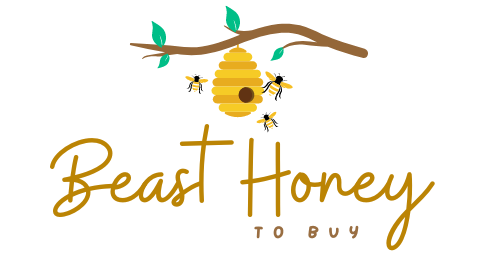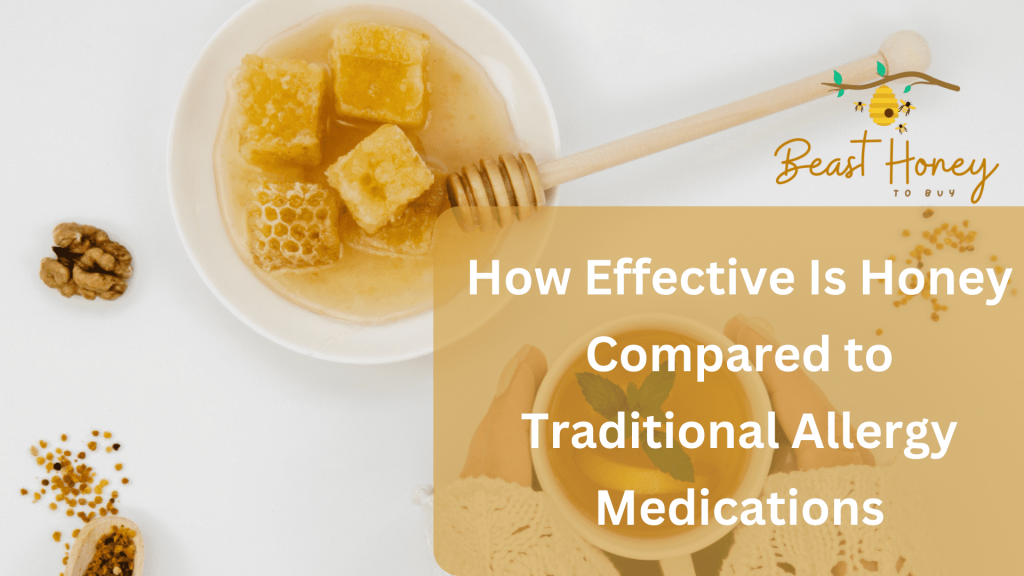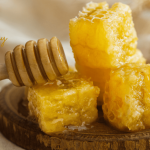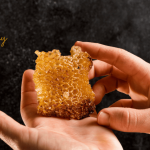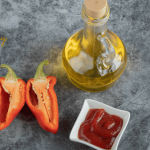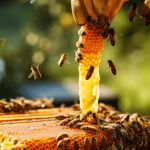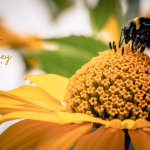Spring has arrived, and although some people are excited about it, allergy sufferers find it to be a nightmare and it’s not even spring yet!
Allergens are present in the air throughout the summer, fall, winter, and spring seasons!
You are familiar with the first telltale signs of a coming sick week: a slight itch in your nose, wet eyes upon awakening, or a scratchy throat!
Now, let’s discuss hay fever and other seasonal allergy therapies that are natural.
So, a powdery material that aids in plant reproduction and seed production, is produced by plants in the spring, which is when seasonal allergies such as hay fever begin.
Typically, this is a springtime issue, but you could be among the unfortunate few who experience hay fever year round. Hooray!
As those who experience it are aware, allergens found in the environment, such as mold, dust mites, pollens, and animal hair, can trigger hay fever in the nose or eyes.
Customers frequently ask us at Wild Forest Raw Honey Beekeepers’ Honey if our 100% raw natural honey may relieve hay fever.
We do think that our honey can help relieve the symptoms of hay fever, even though it is not a cure. Here’s how to do it!
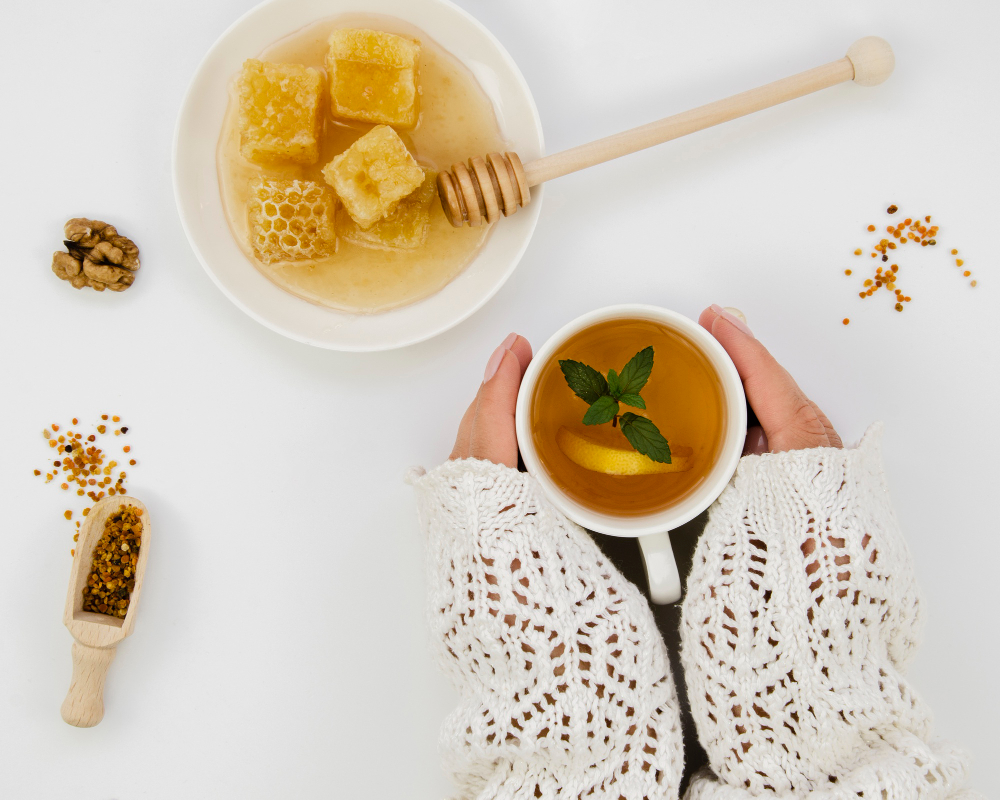
What are allergies?
A common problem for many people who enjoy being outside is seasonal allergies. Usually, they start in February and go until August or September.
The onset of pollen production by plants causes seasonal allergies. Pollen is a powder like material that aids in the reproduction and seed production of plants.
Seasonal allergies are caused by pollen, which people can inhale. As with bacteria or viruses, allergies arise when the body views pollen as an alien invader. The body retaliates by attacking. This leads to symptoms like:
- Sneezing
- Watery and itchy eyes
- A runny nose
- Sore throat
- Coughing
- Headaches
- Breathing issue
Seasonal allergies can be treated over the counter, but some people would rather use natural remedies.
Local honey is one product that is said to help with seasonal allergies. Raw, unprocessed honey produced nearby is referred to as local honey.
Although many scientists and medical professionals are still dubious of the effectiveness of this honey, it is said to help with allergies.
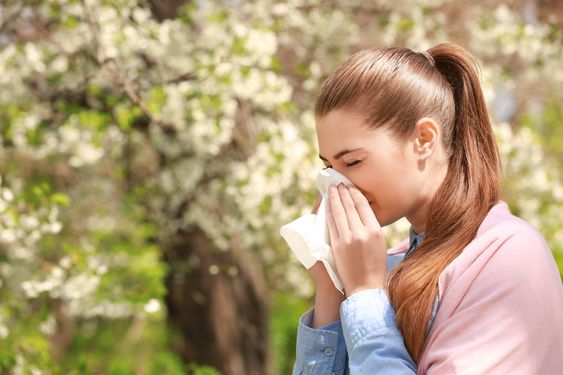
Why Is Honey Believed to Help Allergies?
The concept of administering allergy shots is analogous to that of using honey to cure allergies.
However, although the effectiveness of allergy injections has been shown, honey has not. It is believed that consuming honey from the area exposes a person to local pollen.
An individual may become less sensitive to this pollen with time. They might thus suffer from fewer symptoms of seasonal allergies.
Bees do, in fact, produce honey and pollinate flowers. However, it is believed that pollen from plants and the environment comes in extremely minute and diverse volumes.
There is no way to know how much if any, pollen is being consumed by someone who consumes local honey.
This is not the same as allergy shots, which deliberately desensitize a person to pollen at predetermined levels.
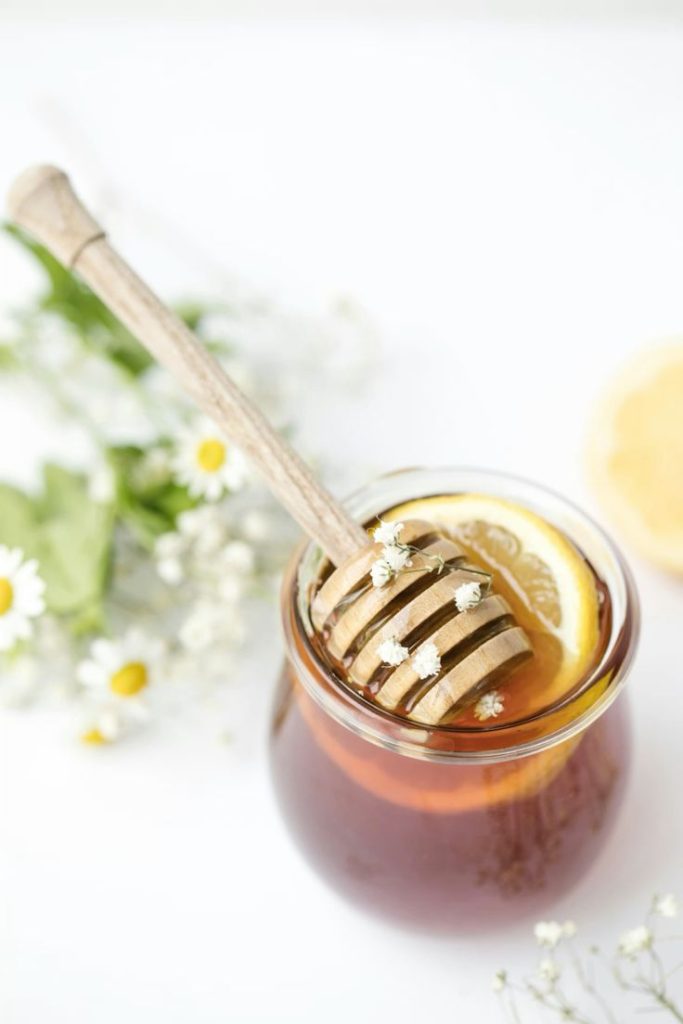
Why is it that some people think honey can treat seasonal allergies?
The theory behind the concept that raw, unpasteurized honey helps with allergies is that it includes local pollen.
The idea is that your body would become less sensitive to pollen if it were exposed to it on a regular basis.
Since this is the rationale for allergy injections, it makes sense in theory. These injections have proven to be quite successful and also introduce you to an allergen progressively.

What is the evidence based agreement regarding allergies and honey?
There is little research on using honey to treat allergies. Additionally, the data is inconsistent.
There have been two sizable studies conducted, and they are incompatible.
Three types of allergy sufferers were identified in one investigation. It contained fresh honey from the area. The honey in the second was manufactured commercially.
A synthetic honey flavored corn syrup was given as a placebo to the third group. There was no discernible difference in the three groups’ allergy symptoms.
In another trial, a control group was given a placebo (corn syrup flavored with honey), while a group of individuals with seasonal allergies were given raw honey.
Antihistamines were also provided to both groups. After four weeks, there was no change in the symptoms; however, after 8 weeks, the researchers saw that the honey group’s allergy symptoms had improved.
And even when the group stopped using honey, that improvement persisted for a month.
Thus, while honey may be helpful, experts are skeptical about its efficacy as a cure all for seasonal allergies.
What Studies Have Been Done About Allergies and Honey?
In one study, pasteurized honey was compared to local honey to see how it affected allergy symptoms.
The findings demonstrated that neither group’s seasonal allergy symptoms improved when they consumed honey.
Years later, however, another study discovered that some patients did experience improvements in their allergy symptoms when they consumed honey.
Small sample numbers and contradictory findings characterize these studies. Because of this, it is difficult to say whether using local honey could consistently help someone feel less affected by seasonal allergies.
In order to validate or suggest a specific quantity of honey, larger research is required.
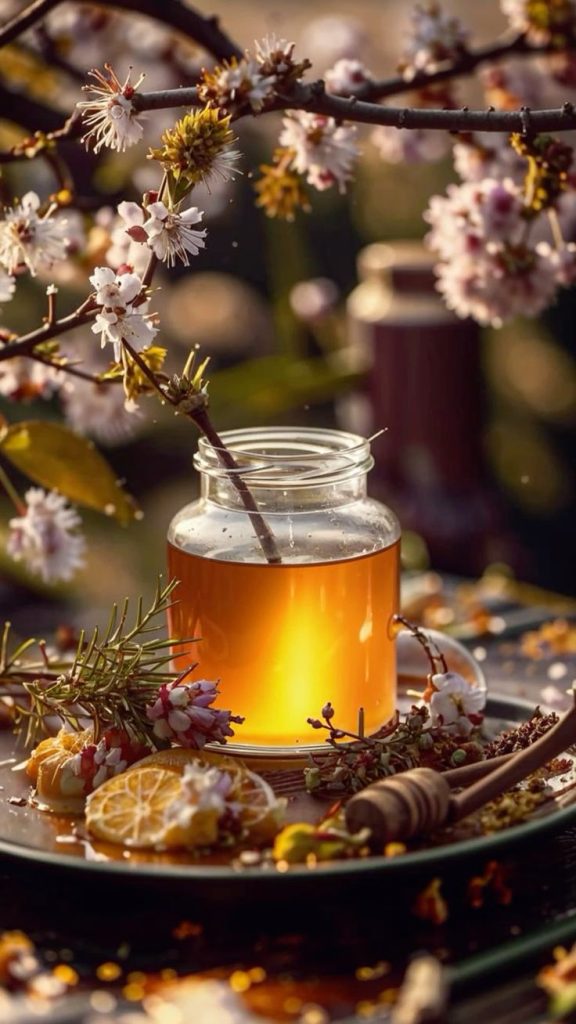
Allergies and honey
First, let’s be clear that there is no scientific evidence supporting the use of honey to treat or mitigate allergies.
Honey can, however, aid with symptoms similar to those of the common cold, such as sneezing, runny nose, coughing, difficulty breathing, and watery eyes, even if it’s not a “cure” for hay fever.
We’ve previously written about the benefits of honey for colds and coughs: Does honey help with the flu?
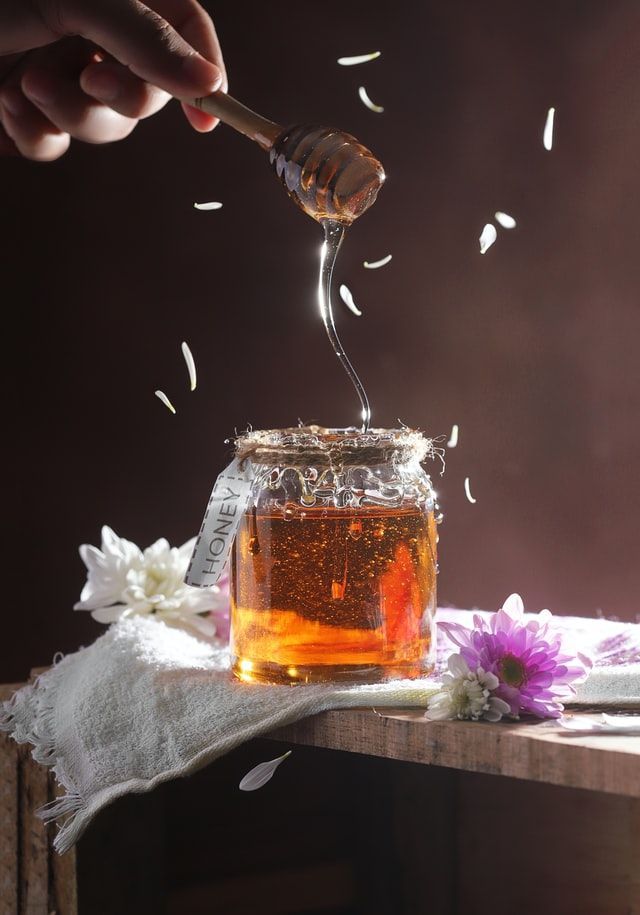
Is hay fever curable with honey?
Can hay fever be treated with a spoon of honey instead of antihistamines?
While some individuals we speak with do not doubt it, others do swear by it. Because honey contains tiny amounts of pollen, it is thought that eating honey will treat an allergic reaction.
But since bees don’t search for grass pollen, honey won’t assist if you have an allergy to it.
But there’s some excellent news. There is some relief from hay fever symptoms with honey!
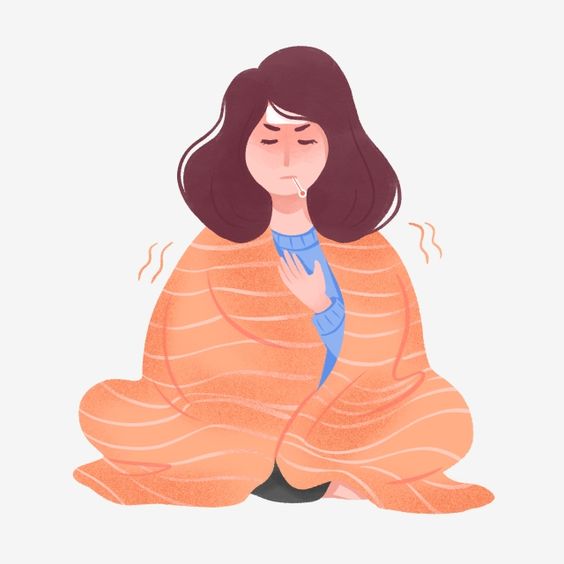
Using honey to treat a cough
Antioxidants included in honey are known to aid in the fight against infections.
The World Health Organization (WHO) suggests honey as a natural cough medication because it relieves the irritation in the throat that leads to coughing. Honey is often praised as a cough remedy.
According to a another study, “Honey improved sleep quality and reduced nighttime coughing in children with upper respiratory infections to a greater extent than the cough medicine dextromethorphan.”
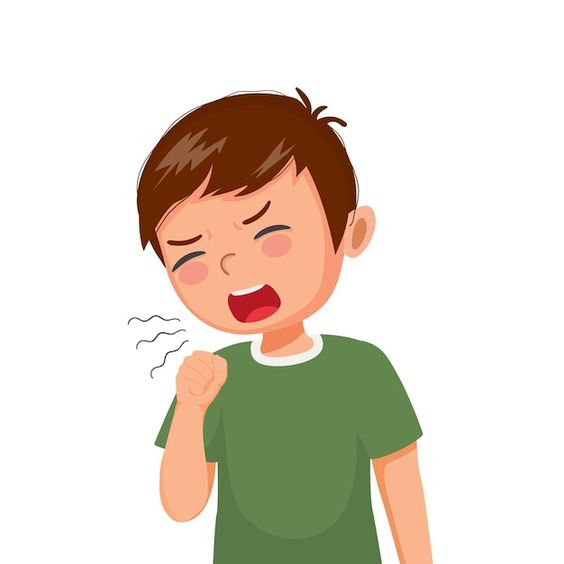
Using honey as a pain reliever
Honey has anti inflammatory properties that occur naturally. Manuka honey has several different types of anti inflammatories.
Hay fever and other allergies are the body’s immunological reaction to “the allergen.” Your body confuses an allergen, such as pollen, for microorganisms.
Your immune system is triggered to attack the “germ” in reaction.
Histamine and a variety of other biochemicals released by immune cells cause inflammation and make your nose run.
Antihistamines block the histamine but do not treat the resulting long term inflammation. Herein lies the role of honey.
Other symptoms, such as the “feeling of pressure” in your sinuses and nose, may be lessened by its inherent anti inflammatory qualities.
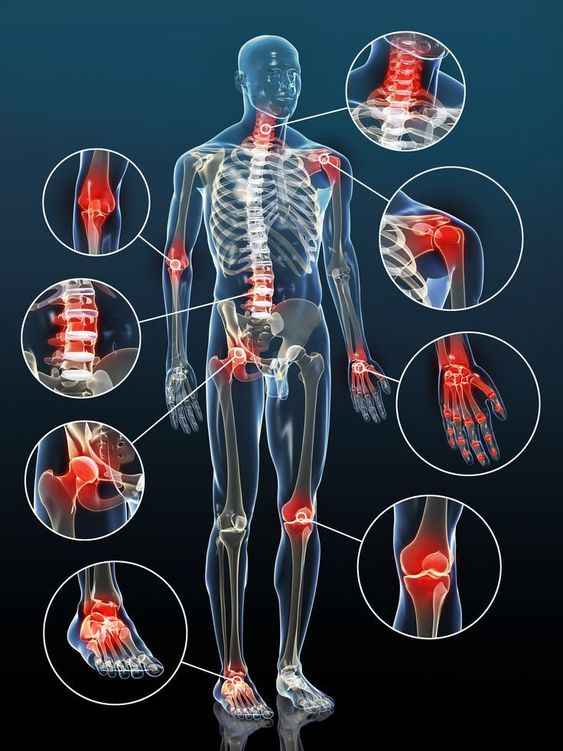
The Truth About Local Honey and Pollen
It is true that exposure to the particular pollens (or closely related ones) that cause your symptoms, which are probably present in your location, is necessary for effective immunotherapy for pollen allergies.
The only problem is that your honey most likely doesn’t contain such pollens. Trees, grasses, and weeds are almost always the source of pollen allergies.
A few of the worst offenders include ragweed and birch, two of the most prevalent triggers.
Flowers aren’t really pollen hotbeds, despite the fact that we may be most familiar with their dense, yellow pollen. Even for those who deal with flowers, the scent rather than the pollen is usually the problem.
With the heavier, stickier pollens, aerosolization doesn’t really occur; you actually need to be exposed to a lot of it. A honey’s foundation is these harmless pollens.
You can never be sure that the pollens you are most sensitive to will be present in adequate concentrations in the local honey to cause an immunological reaction.
Although the majority of studies on multi floral kinds of honey show averages of between 10 and 20 species, one batch of honey can include pollen from more than three dozen plant varieties.
Furthermore, careless dosing is a further red flag that local honey immunotherapy is ineffective.
The fact that dosages are precisely calibrated to produce mild, controllable immune responses contributes to the effectiveness of medical immunotherapy for allergies, which involves administering allergy injections, under the tongue drops, or tablets over time.
When you receive allergy shots, your doctor will gradually increase the dosage while monitoring you for allergy symptoms while your body responds.
Every time you ate honey, you would be itching if a spoonful of it had the proper quantity of pollen to gradually desensitize you.
Furthermore, although some individuals who market and sell local honey for allergy sufferers provide gradual dosage recommendations based on body weight, these calculations are unable to take into consideration the variation in actual pollen concentrations.
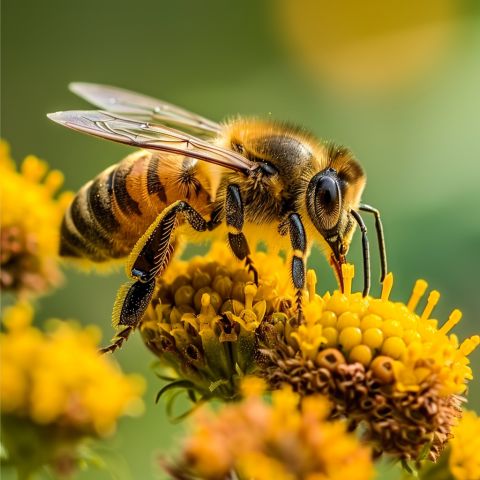
What the Studies Suggest
There hasn’t been any research done by peer review that looks at using local honey as a treatment for seasonal allergies.
However, a few studies have examined honey more broadly as a possible adjunctive therapy for allergy symptoms and are frequently referenced when advocating for regional honey therapies.
However, the majority of research on honey and allergic reactions is constrained by small sample sizes.
Honey has calming effects on the descent, but it has no demonstrated medical benefit for allergies.
What You Should Know Before You Use Honey as a Treatment?
There is no set quantity of honey that is advised to be consumed daily by doctors or researchers to help ease the symptoms of seasonal allergies.
Not to mention that the amount of pollen in a serving of local honey is seldom guaranteed.
It should be noted that honey in any form should not be given to children under the age of one.
Raw, unprocessed honey can lead to baby botulism, and pasteurized honey and baked foods can also be dangerous.
Furthermore, consuming honey might cause anaphylaxis, a potentially fatal allergic reaction, in certain individuals with a severe pollen allergy.
Breathing problems may become severe as a result. Some individuals can encounter allergic responses that manifest as skin, throat, or mouth swelling or itching.
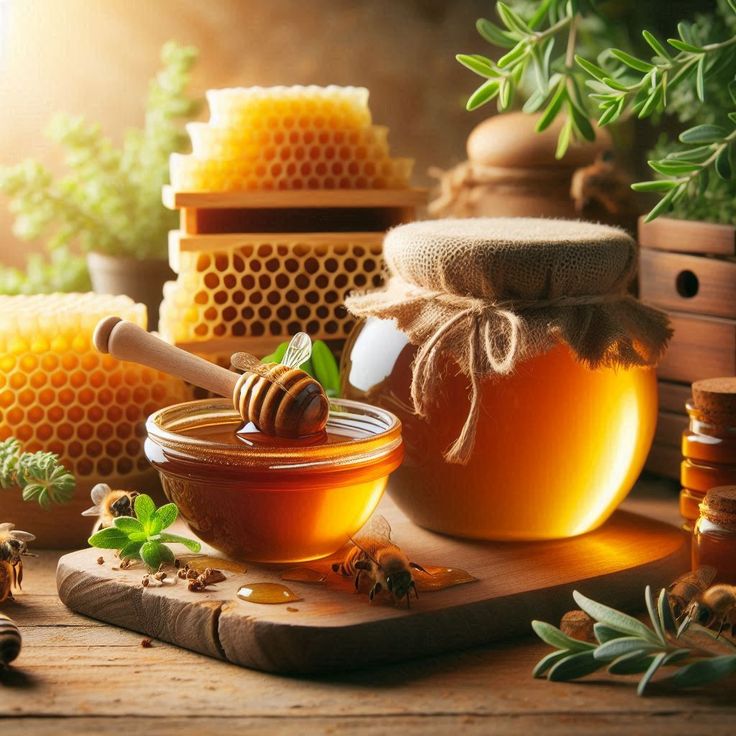
Frequently Asked Questions
1. How much honey if I have allergies should I consume?
It is not advised to use honey in any amount to cure allergies. Ask your doctor what they believe is best for you if you’re thinking about taking honey as a preventive step.
2. Is it possible for honey to treat allergies?
There isn’t enough proof to say that honey can treat or avoid allergies. Further clinical research is required to ascertain its efficacy.
3. How long before honey starts to relieve allergy symptoms?
A specific amount of time cannot be specified because there is little data to support the claim that honey relieves allergies.
4. Is honey an antihistamine found in nature?
There is proof that honey works as a natural anti inflammatory, but not as a natural antihistamine.
